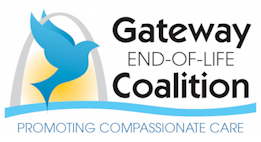Midwest End-of-Life Doula Collective
The Midwest End-of-Life Doula Collective is comprised of professionally trained end-of-life doulas, and doulas in training from St. Louis and its surrounding area who serve the dying and their families. We educate the public, health care providers, and individuals regarding end-of-life care and the role of the end-of-life doula. We expand our knowledge, collaborate, and provide a community of support for one another. The Midwest End-of-Life Doula Collective welcomes all who care about end-of-life and seek to empower those who are dying and their loved ones.
End-of-Life Doulas are:
- Non-medical
- Family-centered
- Advocates for the dying
- Emotionally supportive
- Pragmatic and well-resourced
- Holistic
- Non-judgmental
- There to honor and support patient and family decisions & decision-making
- A complement to hospice care
End-of-Life Doulas may offer the following:
- Help with end-of-life planning, which may include green burial or home funeral
- Support from initial diagnosis through bereavement
- Sitting vigil with the dying and their loved ones
- Assistance with advance care planning
- Education, information and resources
- Addressing concerns of both client and family (i.e.: fear, dread, death process)
- Building a network of support
- Provide comfort before and after death
- Assistance with life review
- Respite or overnight care
- Household Support
- Personal care
Each end-of-life doula’s practice will differ based on their areas of expertise.
Mission
The mission of the Midwest End-of-Life Doula Collective is to transform the end-of-life experience through awareness, collaboration, and advocacy.
Ethical Standards
The Midwest End-of-Life Doula Collective is committed to a set of ethical standards. These standards are relevant for end-of-life doulas regardless of their professional functions, the settings in which they work, or the populations they serve.
These standards give the public and healthcare organizations an understanding of the ethical principles and practices that guide the professionally trained end-of-life doula. They are important when ethical uncertainties arise in the performance of end-of-life doula services to a dying person and their loved ones.
